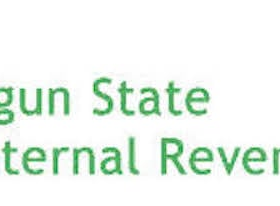Anambra State, Nigeria’s sixth richest state by GDP, is pushing to tackle systemic issues such as inflated budgets, payroll fraud, and inefficient service delivery using artificial intelligence. Behind the drive is the Anambra State ICT Agency, created in 2019 and responsible for driving digital innovation across the state.
One of its flagship initiatives is SmartGov Suite, an AI-powered platform developed in-house by a team of local tech experts. According to Nonso Okoye, the Governor’s Special Assistant on Cybersecurity, who led the team of experts, the AI tool will be deployed across all the ministry departments in the state, beginning with the local governments.
“We started with the local governments,” Nonso Okoye told TechCabal from his freshly painted office at the new Anambra State Government House. It was Thursday, June 27, 2025—the first day the state’s ICT agency officially resumed operations in the new building.
Across Anambra, as in many parts of Nigeria, government processes remain largely manual and paper-based. In May, Kashifu Inuwa, Director General of the National Information Technology Development Agency (NITDA), revealed to TechCabal that less than 10% of government operations nationwide have been digitised. Anambra, however, is prioritising its 21 local governments due to their frontline role in delivering public services and directly impacting citizens’ day-to-day lives.
“For example, in budgeting, the AI flagged a ₦2.1 billion unspent allocation in the education sector simply because it couldn’t find disbursement records,” Okoye said. “That’s the kind of clarity we’re building into the system.”
The SmartGov Suite acts as a full-fledged assistant across public services. Users, including Anambra citizens, public officials, and civil servants, can ask the AI about payments, permits, or regulations, and it pulls relevant information from state systems. More importantly, it can cross-reference data across ministries to detect duplication, track project spending, and monitor vendor compliance.
AI against corruption and waste
The most immediate benefit of the AI tool is in payroll verification. By analysing National Identity Numbers (NINs), Bank Verification Numbers (BVNs), and other unique identifiers, the AI model can detect when multiple employees are linked to a single account number—a common indicator of ghost workers.
“We found instances where one account was used by seven different people,” Okoye said. “That’s the kind of insight manual processes simply can’t catch.”
Beyond payroll, the system also tracks vendors and procurement. “We saw one vendor who was awarded five contracts in three weeks. The system flagged it for review,” he added. These kinds of red flags will make it increasingly difficult for procurement fraud to go unnoticed.
Why AI investment by states matters
Anambra’s investment in AI reflects a shift in how state governments think about technology governance in Nigeria. This proactive approach matters. Without early state-level experimentation and adoption, Nigeria risks falling behind in creating robust AI systems that reflect local contexts.
“If we don’t lead ourselves, we’ll be led by imported systems,” Okoye said. “And we might not always like the outcomes.”
The potential for AI adoption in government is enormous. States that begin investing in AI capacity today are better positioned to develop institutional expertise, train local talent, and enable broader digital transformation. For instance, the SmartGov platform is being built to eventually unify health, education, and civic data into a single, integrated ecosystem. “Right now, everyone is working in silos,” said Okoye. “We’re breaking that down by creating one platform that connects everything.”
Navigating legal uncertainty
One of the biggest challenges for AI adoption in government is the lack of clear regulation. As Nigeria’s Minister of Communications, Innovation, and Digital Economy, Bosun Tijani is addressing this gap by leading the development of the country’s first National Artificial Intelligence Strategy. The strategy focuses on building local talent, funding AI research, and supporting indigenous startups, most notably by developing Africa’s first multilingual and multimodal large language model. The strategy also places strong emphasis on governance, ethical standards, and public accountability in the deployment of AI.
Still, regulatory inconsistencies remain a concern. “Different states may soon create conflicting laws around AI,” Okoye cautioned. “One state might completely ban government agencies from using it, while another may fully embrace it.”
He’s calling for the federal government to step in—not to stifle innovation but to work with states and experts to craft a uniform framework that addresses the risks that people face using AI. “We need a national task force that looks at risks, training methods, and ethical considerations before AI adoption gets too fragmented,” he said.
Some of these risks are already evident. Poorly trained models can produce inaccurate results, especially if they rely on outdated or biased data. In high-stakes areas like healthcare or justice, these inaccuracies could have severe consequences. That’s why Anambra is also working on a new law to govern how AI is trained and deployed within its jurisdiction. Governor Soludo has set up a team to craft the regulatory framework for AI usage, which will be submitted to the state assembly to consider as a bill. The law, if enacted, will ensure the responsible treatment of the data fed to the SmartGov AI tool.
Okoye says this is only the beginning. The AI behind SmartGov is being trained to enable conversational interfaces that allow citizens to speak directly with government virtual agents or even an AI-assisted governor model that could respond to queries via text, voice, or video.
Mark your calendars! Moonshot by TechCabal is back in Lagos on October 15–16! Join Africa’s top founders, creatives & tech leaders for 2 days of keynotes, mixers & future-forward ideas. Early bird tickets now 20% off—don’t snooze! moonshot.techcabal.com



















Leave a Reply